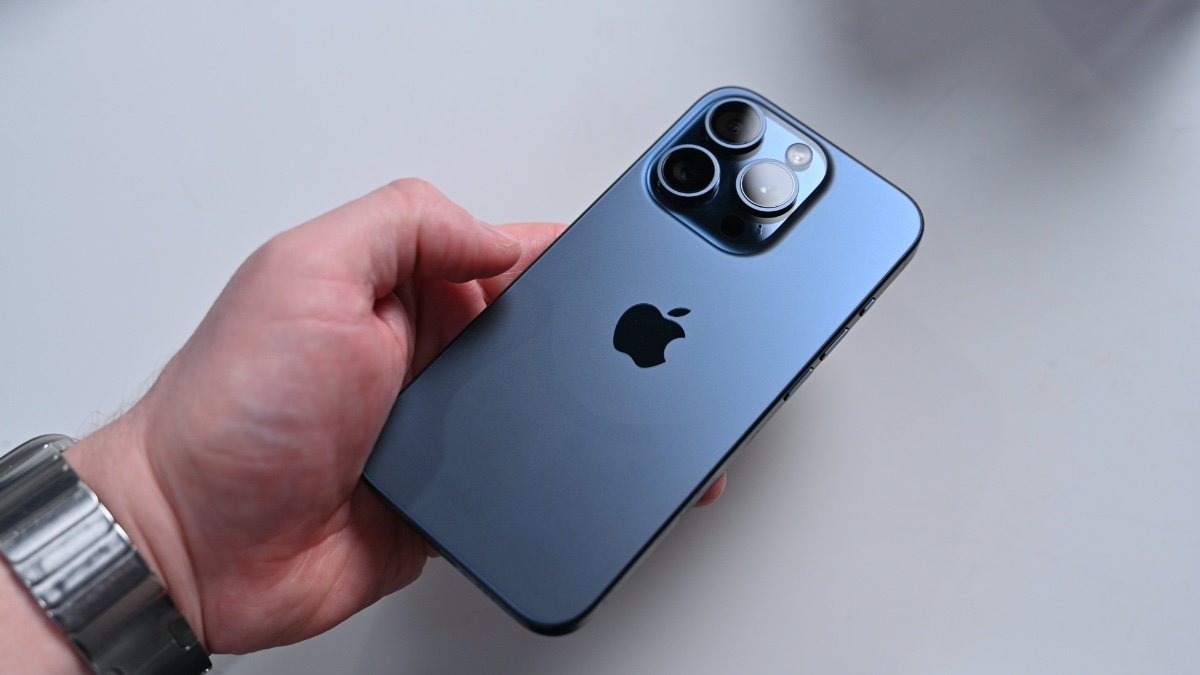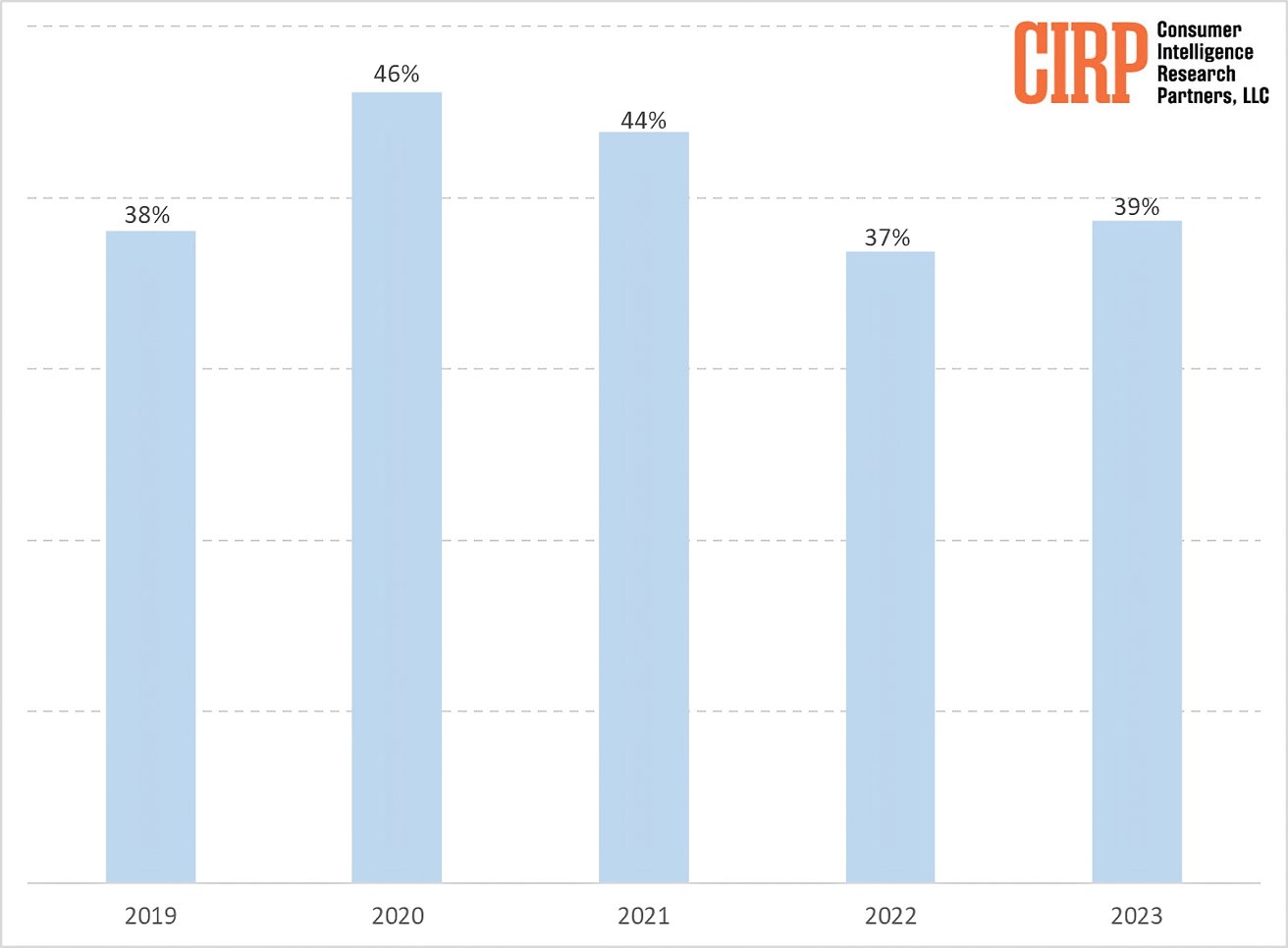iPhone US market share sees small jump as Android still dominates
Although the iPhone is dominant in specific areas of the US smartphone market, it still trails behind Android in terms of overall usage.

iOS still trails behind Android in the US
Earlier statistics indicated that the iPhone is the preferred smartphone among teenagers, as 87% of teens currently have one, and 88% anticipate it will be their following phone selection, according to a report from April. Nonetheless, the latest study by Consumer Intelligence Research Partners (CIRP) shows that Apple's position in the US smartphone market has stayed consistent overall, maintaining its spot as the second most popular choice.
Over the last ten years, there has been a growing trend of Android users moving to iPhones, according to a report from May. However, statistics for "iOS versus Android" have another layer because only the iPhone can run iOS, as opposed to Google opening up Android to run on smartphones from numerous companies.

iOS share (US mobile phone customers, twelve months ending in September of each year)
Specifically, as of the annual period ending in September 2023, iOS accounted for 39% of smartphone sales. That challenges the popular narrative of iPhone dominance and offers a more balanced view of Apple's standing in the competitive landscape.
Apple's market share hasn't been static, it has seen fluctuations over the years. According to the report, the iPhone's market share has oscillated within a relatively narrow range -- between 37% and 46% -- over the past five years. Interestingly, iOS experienced its highest market share at the onset of the COVID-19 pandemic.
However, that peak was followed by a gradual decline over the subsequent two years. The slight uptick to 39% in the year ending September 2023 suggests a reversal of this downward trend.
Several factors have contributed to these market share trends. In the early years of the smartphone era, Apple gained market share as it expanded its carrier partnerships beyond its initial exclusive agreement with AT&T.
Additionally, the exit of competitors like Blackberry and Windows phones from the market helped solidify the iOS-Android duopoly in the US. But while the market shares of both platforms have been relatively consistent since then, Apple has been more successful in persuading Android users to switch to iPhones.
Read on AppleInsider

Comments
Afterall most keep their iPhones for 3-5 years now. I’m guessing the cheaper Android handsets that make up the bulk of their sales get exchanged far quicker on average.
https://www.oberlo.com/statistics/us-smartphone-market-share
But sure, Android OS smartphone sales are greater than iPhone sales in the U.S., maybe.
What does that tell me? Well, it says to me that iPhone users actually hold on to their phones longer and are likely passing their older phones down to other users.
https://www.nytimes.com/2023/09/11/technology/apple-iphone-17.html#:~:text=In%20the%20United%20States%2C%20the,of%2013%20percent%20in%202019.
What makes the Oberlo number any more accurate than the CIRP number? They aren't particularly forecoming about their methodology. How did they arrive at this number?
Looking at the company info link, this appears to be a Lithuanian headquartered e-commerce consulting firm. Why would they have better US smartphone data?
https://gs.statcounter.com/vendor-market-share/mobile/united-states-of-america
and under FAQ;
https://gs.statcounter.com/faq#methodology
Now that may not be sufficient for you, and I encourage you to do your own research, it does appear that Statcounter is a reasonable source. Please also note that there is iPhone of the total mobile phone user base in the U.S. market; and marketshare, which is specifically wrt sales.
Every year we hear about how Apple doesn't have a bigger market share than all those lame companies' phones but what does Apple have? All the profits! Since Android makes their money on the customer data no wonder they are cheaper. People who don't know quality, security, ease of use, non-fragmented OS, looking for the best deal buy Android. Ahh don't forget you can customize the icons on the Home Screen (mind blown). It's like buying a trailer home vs a custom home. It's cheaper but it costs you a whole bunch of your soul.
Also, let's get more patriotic. Buy an American company's products. Don't buy something that someone else stole from Apple. Android would not exist (meaning all the Asian phones) if it were not for Jobs and Apple.
Again ANY other company would jump for joy if they could profit just one-quarter of what Apple does. Apple is doomed...
>In determining whether a competitor possesses monopoly power in a relevant market, courts typically begin by looking at the firm's market share.(18) Although the courts "have not yet identified a precise level at which monopoly power will be inferred,"(19) they have demanded a dominant market share. Discussions of the requisite market share for monopoly power commonly begin with Judge Hand's statement in United States v. Aluminum Co. of America that a market share of ninety percent "is enough to constitute a monopoly; it is doubtful whether sixty or sixty-four percent would be enough; and certainly thirty-three per cent is not."(20) The Supreme Court quickly endorsed Judge Hand's approach in American Tobacco Co. v. United States.(21)
Following Alcoa and American Tobacco, courts typically have required a dominant market share before inferring the existence of monopoly power. The Fifth Circuit observed that "monopolization is rarely found when the defendant's share of the relevant market is below 70%."(22) Similarly, the Tenth Circuit noted that to establish "monopoly power, lower courts generally require a minimum market share of between 70% and 80%."(23) Likewise, the Third Circuit stated that "a share significantly larger than 55% has been required to establish prima facie market power"(24) and held that a market share between seventy-five percent and eighty percent of sales is "more than adequate to establish a prima facie case of power."(25)<
"The judge said that the FTC did not adequately support its assertion that Facebook has more than 60% of the market..."
https://www.reuters.com/technology/us-judge-tells-ftc-file-new-complaint-against-facebook-2021-06-28/
It does not mean they'll be found guilty of it, but Apple will do what it can to stay below that 60% threshold IMO. Apple has mixed success in courtrooms. Muddying the market share waters with a report like this works to Apple's benefit, and I would not be shocked to learn Apple is on-board.